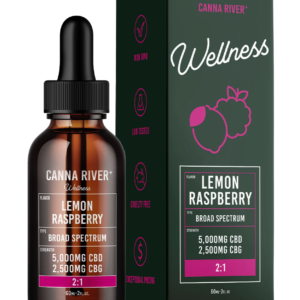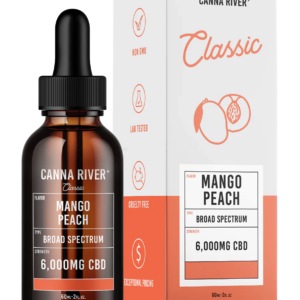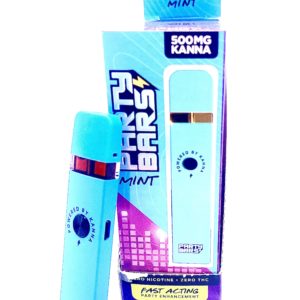Kratom (Mitragyna speciosa) is a medicinal coffee tree relative
from South East Asia that has been used for over 500 years.
Laborers and farmers traditionally use the leaves of the tree in
a tea for energy while working the same as we use coffee for a
‘Pick me up’. In the US, we also use the leaves as a tea, or in a
vegetable capsule. The plant also shares 28 constituents in
common with Cat’s Claw, the hailed medicinal plant of the
Amazon that is renown for its potent immune bolstering and
anti-inflammatory properties among many other uses.
Mitragyna Speciosa is truly a remarkable tree with a long
history of daily usage in many South East Asian countries.
1. Kratom is not a drug. Mitragyna Speciosa, commonly known as kratom, has been
declared a new dietary ingredient by the FDA which means it would be labeled as a dietary
supplement and should be manufactured in compliance with the requirements of sections
402(g)(2), 415 and 761 of the Federal Food, Drug and 12 Cosmetic Act (21 USC 342(g)(2),
350d, 379aa-1).
2. Kratom is safe. There are zero deaths from any supplement. The most recent
(2014) information collected by the U.S. National Poison Data System, and published in the journal Clinical Toxicology (1), shows no deaths whatsoever from dietary supplements across the board. To date there has NOT been one death from kratom alone reported or any other dietary ingredient.Mowry JB, Spyker DA, Brooks DE et al. (2015) 2014 Annual Report of the American Association of Poison Control Centers’
National Poison Data System (NPDS): 32nd Annual Report, Clinical Toxicology, 53:10, 962-1147,
http://dx.doi.org/10.3109/15563650.2015.1102927
3. According to the New York State Office of Alcoholism and Substance Abuse Services
kratom is a plant, not a designer drug that is consumed as a tea or in a vegetable capsule
form. It also states that there are little to no toxic effects from kratom use and that the most
severe side effects from heavy use include sleepiness, dry mouth, frequent urination, loss of
appetite, and nausea. http://www.oasas.ny.gov/AdMed/FYI/kratomfyi.cfm
The side effects of kratom are actually less severe than that of coffee. Coffee containing
caffeine can cause insomnia, nervousness, restlessness, stomach upset, nausea, and vomiting,
increased heart and breathing rate, and other side effects. Consuming large amounts of coffee
might also cause headache, anxiety, agitation, ringing in the ears, and irregular heartbeats.
4. In the most recent New York State Poison Control Data Report kratom was not even listed
as a substance involved in human exposures. Painkillers took the number one spot 3 years in a
row along with anti-depressants and sedative/hypnotics.
https://www.health.ny.gov/statistics/professionals/poison_control/report/2002-2004/docs/full_report.pdf
Education. Advocacy. Action.
5. Kratom and its constituents have shown no acute toxicity [1], displays powerful antioxidant
and antibacterial properties [2], assists with drug and alcohol withdrawal symptoms [3],
contains several oxindole alkaloids, which have exhibited potent immunomodulation
properties, and even contains constituents that have exhibited anti-cancer properties. [4]
1] S.N. Harizala, b, c, , S.M. Mansorb, , J. Hasnanc, J.K.J. Tharakana and J. Abdullaha ?Department of Neurosciences, School of
Medical Sciences, Universiti Sains Malaysia, Centre for Drug Research, Universiti Sains Malaysia?Department of Pathology, School
of Medical Sciences, Universiti Sains Malaysia, 2010
[2] Evaluation of Antioxidant and Antibacterial Activities of Aqueous, Methanolic and Alkaloid Extracts from Mitragyna Speciosa
(Rubiaceae Family) Leaves.?Suhanya Parthasarathy,Juzaili Bin Azizi, Surash Ramanathan, Sabariah Ismail, Sreenivasan Sasidharan,
Mohd Ikram Mohd. Said and Sharif Mahsufi Mansor. Universiti Sains Malaysia, Penang, Malaysia, Institute for Research in Molecular
Medicine, Malaysia, Universiti Kebangsaan Malaysia Selangor, Malaysia, 2009
[3] Fitoterapia Volume 78, Issue 3, April 2007, Pages 182-185
[4] García Prado, E., et al. “Antiproliferative effects of mitraphylline, a pentacyclic oxindole alkaloid of Uncaria tomentosa on
human glioma and neuroblastoma cell lines.”Phytomedicine. 2007; 14 (4): 280-4.
6. The Florida House of Representatives released a staff analysis and the concluded that “
Based on its research, FDLE concluded that Kratom does not currently constitute a significant
risk to the safety and welfare of Florida residents. Additionally, the report cites that the Florida
department of Health has found that there are no pervasive health issues can be attributed to
the ingestion of kratom products in Florida.”
Legal substances such as tobacco, alcohol, and energy drinks pose a much higher risk and
addictive potential than kratom. Please consider the following:
Alcohol- Alcohol causes more than 1.2 million emergency room visits and
2.7 million physician office visits due to excessive drinking each year.
Bouchery EE, Harwood HJ, Sacks JJ, Simon CJ, Brewer RD. Economic costs of excessive alcohol
consumption in the United States, 2006. Am J Prev Med 2011;41:516–24.
Tobacco- According to the CDC, cigarette smoking causes 440,000
deaths in the United States every year; about one of every five deaths in
this country are caused by cigarettes
Energy drinks-The number of emergency department (ED) visits involving
energy drinks doubled from 10068 visits in 2007 to 20783 visits in 2011.
DAWN is one of three major surveys conducted by the Substance Abuse and Mental Health Services
Administration’s Center for Behavioral Health Statistics and Quality (SAMHSA/CBHSQ). For more
information on other CBHSQ surveys, go to http://www.samhsa.gov/data/.
Is kratom addictive?
1. A standard argument for outlawing kratom is that it is “addictive.” As a matter of science,
this claim is often over-stated: using alcohol, caffeine, or smoking cigarettes a few times does
NOT generate physiological or psychological dependence; such effects kick in only after
repeated, long-term use (and even then, far from universally). That said, all these substances –
and many more – can indeed be addictive. Take caffeine for example. Millions of people are
addicted to tea, coffee, or diet coke, yet few consider this an issue for health or policy. Why?
Because long-term, heavy use of caffeine does not seem to have major undesired side effects.
The question should not be whether kratom is addictive but whether long-term, heavy use
harms health, productivity, or other aspects of life.
2. Findings showed that regular kratom users do not experience major impairments in their
social functioning, despite being dependent on kratom for prolonged periods. Our findings
suggest that chronic kratom administration does not significantly impair social functioning of
users in a natural context in Malaysia.




